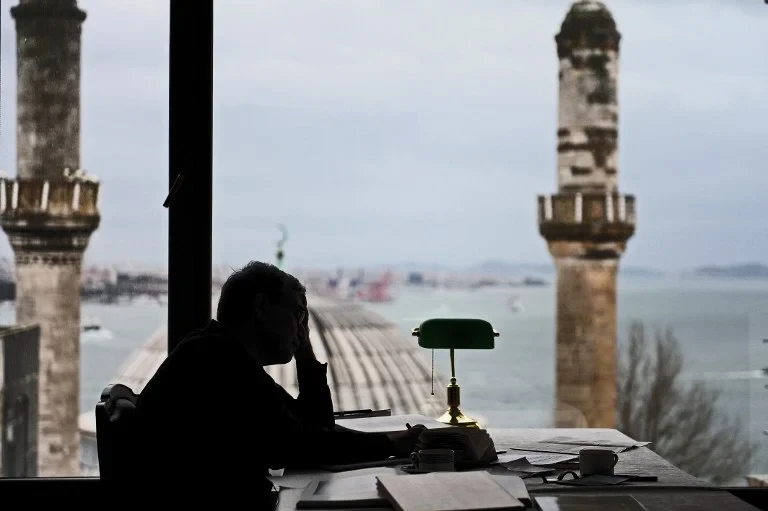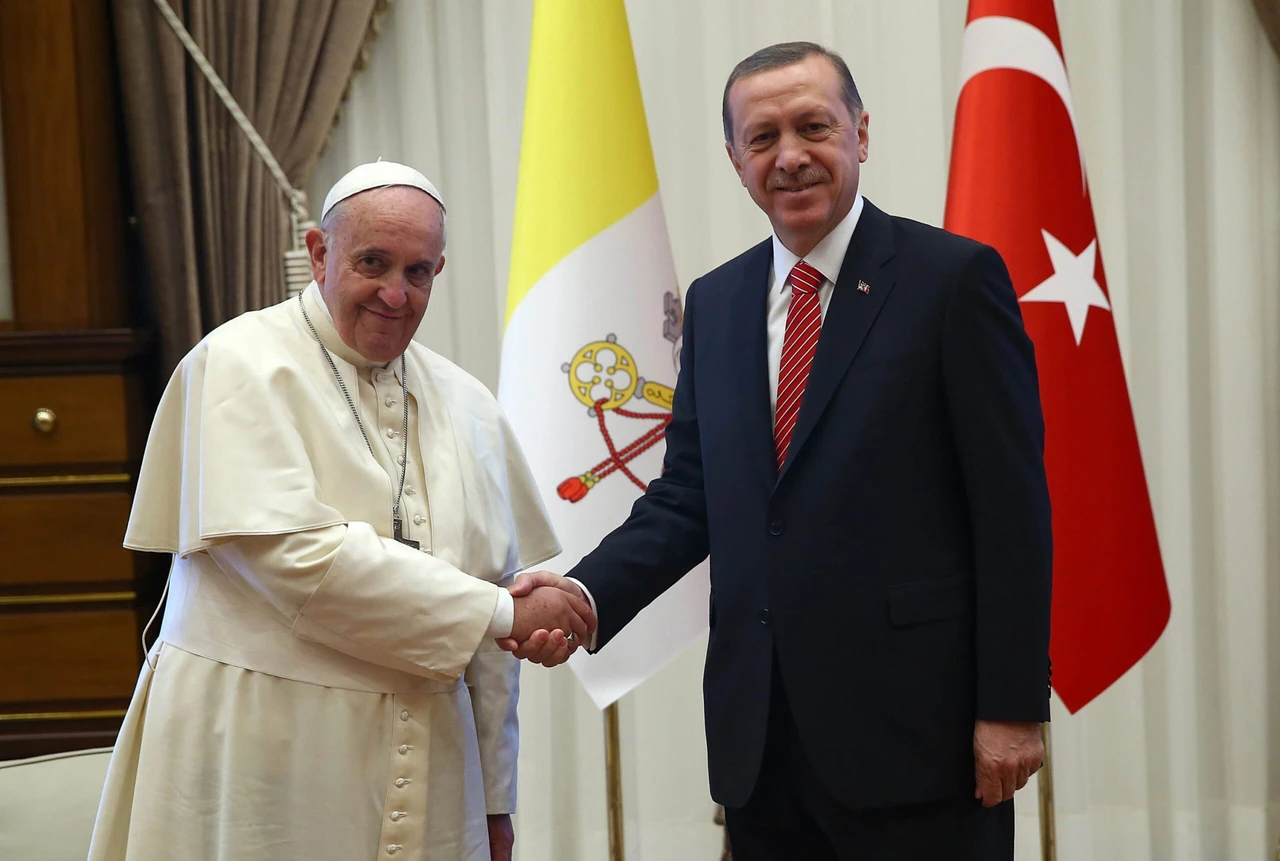Presidency slams Guardian’s report on Türkiye’s ‘Zero Waste’ campaign
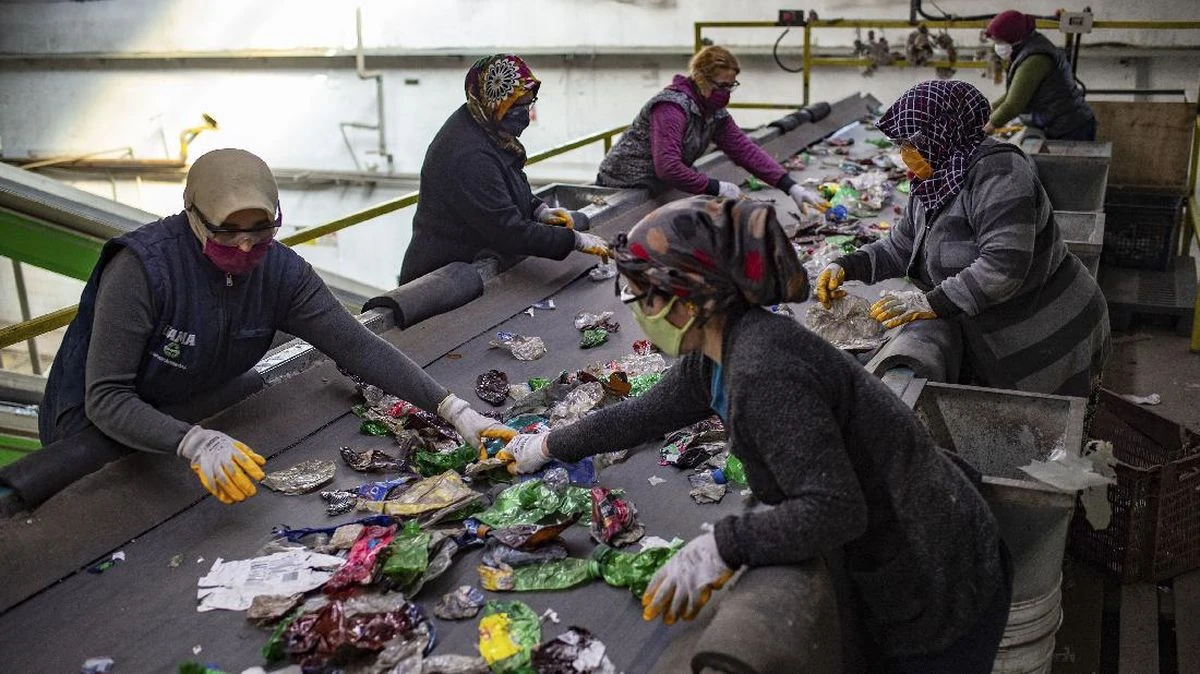 Employees work at GAMA Recycle factory in the southern Turkish province of Gaziantep, November 28, 2020. (AFP Photo)
Employees work at GAMA Recycle factory in the southern Turkish province of Gaziantep, November 28, 2020. (AFP Photo)
The U.K.-based newspaper The Guardian recently reported on Türkiye’s growing role as one of the world’s largest plastic waste importers, just after the announcement of the country’s “Zero Waste” campaign.
In an article written by Alexander Clapp on Feb. 18, the piece argues that Türkiye has become Europe’s “dumping ground” for plastic waste.
The claims made are presented with an arguably biased tone, focusing on Türkiye’s increasing imports of plastic waste with little to no recycling, instead resulting in the transformation of waste into environmentally harmful products.
The report also suggests that despite the “Zero Waste” campaign launched in 2017, Türkiye has transformed into one of the planet’s largest waste dumps. The article further claims that most of the plastic waste is being stored in local landfills rather than being recycled.
Presidency responds with strong denial
The Presidency’s response rejected the claims made in the article, particularly those accusing Türkiye of turning fertile lands in Adana into waste dumps and allegedly burning plastic waste inappropriately.
According to the statement, Türkiye’s plastic waste imports are integral to the recycling sector and play a crucial role in the supply of raw materials and job creation. The response emphasized that the imported plastic waste is processed in a way that positively impacts Türkiye’s foreign trade balance and creates employment opportunities in the recycling industry.
The message concluded that the process supports economic development without harming the environment.
Communications Directorate denounces article as manipulative
On Feb. 21, 2025, the Presidency’s Directorate of Communications issued another statement, claiming that the article was part of a broader manipulation campaign. The statement highlighted the international awards won by Türkiye’s Zero Waste Movement and argued that these achievements were evidence of the campaign’s success rather than the baseless claims in The Guardian’s article.
The official statement read:
“The U.K.-based newspaper The Guardian‘s news article titled,”Türkiye said it would become a ‘zero waste’ nation. Instead, it became a dumping ground for Europe’s rubbish and was found to contain manipulation meant to manipulate public opinion.
Türkiye imports plastic materials due to their economic benefits, significance in the recycling sector, and role in raw material supply. Recycling facilities in Türkiye process imported plastic waste due to difficulties in accessing sufficient domestic raw materials.
This is essential for the continuity of production processes The raw materials obtained from recycling imported plastic waste are used in the production of various products, which are then exported abroad.”
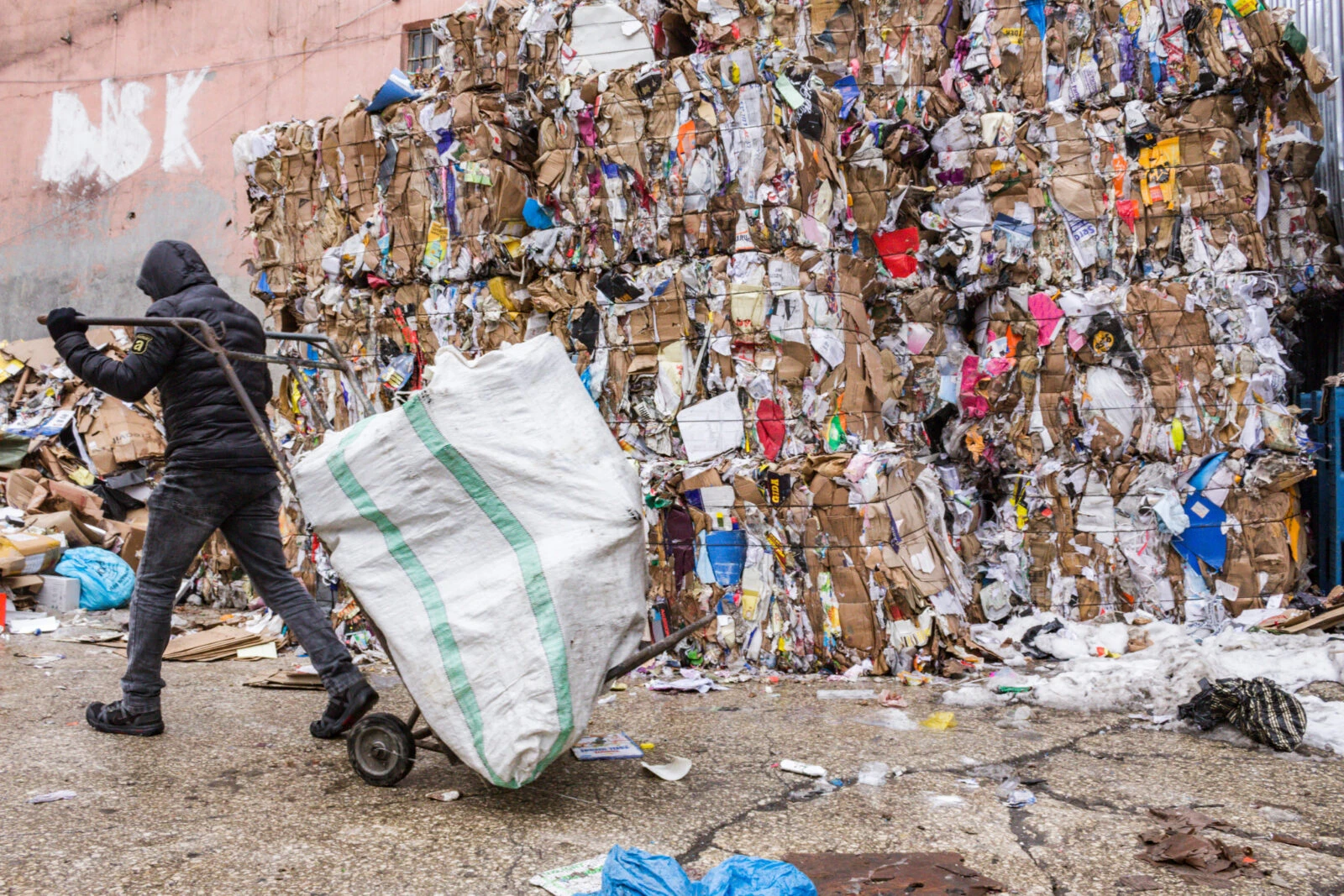
Lawmakers defend Türkiye’s plastic waste imports
In a related response, in December 2024, Saban Copuroglu, a member of parliament for the AK Party in Kayseri, addressed the criticism by defending Türkiye’s plastic waste imports. He pointed out that Türkiye is one of the world’s largest producers of plastic, stating that the country imports waste to process and re-export it to create products for international markets.
Copuroglu rejected the notion that Türkiye imports harmful chemicals and heavy metal-laden waste, explaining that the import of non-recyclable waste is banned in Türkiye and strictly regulated.
Communications Directorate supports ‘Zero Waste’ campaign
Following the statement from the Communications Directorate, Fahrettin Altun, Türkiye’s Communications Director, shared a message on social media reaffirming the government’s commitment to protecting the country’s reputation.
Altun emphasized that the presidency would continue to counter misinformation and defamation campaigns disguised as journalism.
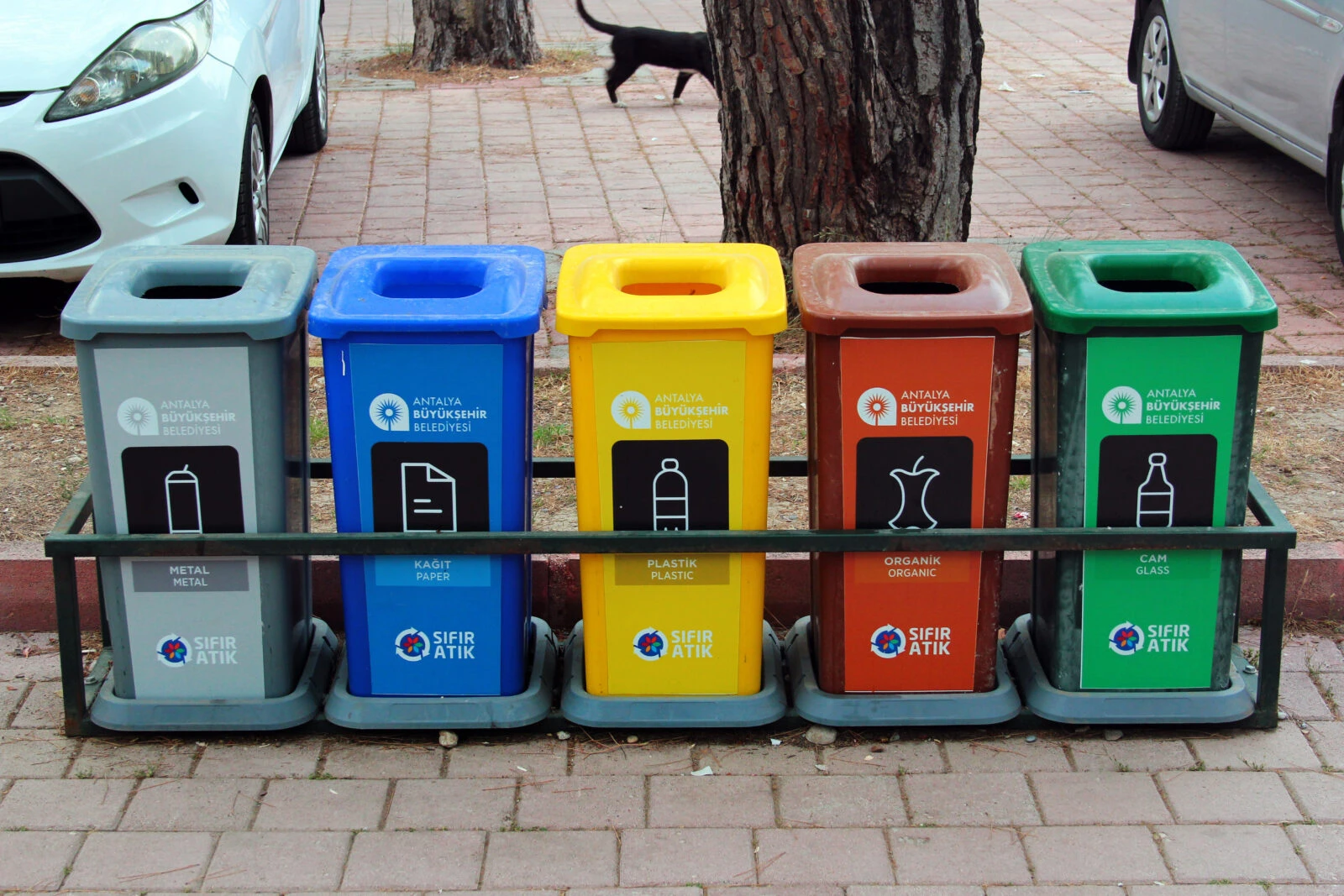
What is latest status of Zero Waste Movement?
As part of the Zero Waste Movement launched in 2017 by the Ministry of Environment, Urbanization, and Climate Change, Türkiye has made remarkable progress in improving recycling rates.
According to 2023 data, Türkiye’s recycling rate has reached 34.92%, a significant increase from 13% in 2017. By the end of 2023, Türkiye had recycled 59.9 million tons of waste, contributing to a reduction in greenhouse gas emissions, water savings, and energy conservation.
As of March 2024, Türkiye has achieved the following milestones:
- 185,000 buildings/complexes have adopted the Zero Waste management system.
- Nearly 22 million people have received Zero Waste training.
- Türkiye has recycled approximately 7.8 million tons of plastic and 29.3 million tons of other recyclable materials.
Looking ahead, the Zero Waste Project aims to recycle 60% of all recyclable waste by 2035.
In conclusion, the debate over Türkiye’s role in plastic waste imports highlights contrasting perspectives.
While some criticize the country for its increasing plastic waste imports, others defend the practice as an essential part of the recycling industry and economic development.
